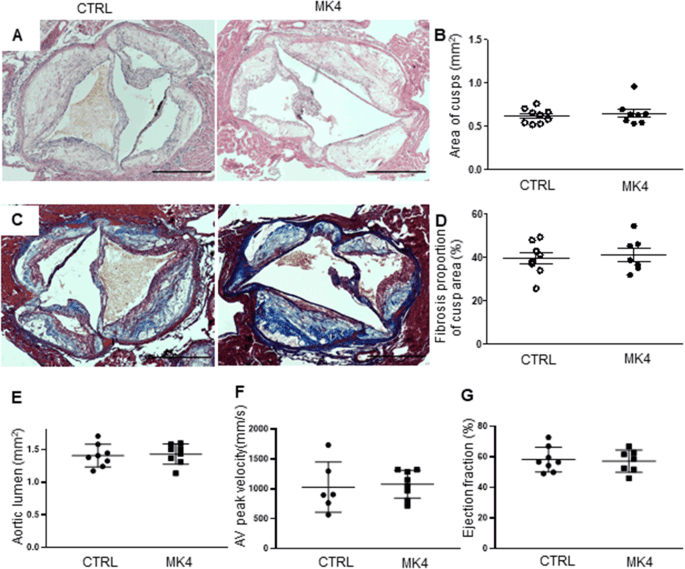Found this mouse study on K2/MK4. Menaquinone 4 increases plasma lipid levels in hypercholesterolemic mice (https://doi.org/10.1038/s41598-021-82724-0)
Interesting, since negative studies on mk4 are rare and megadosing is advocated on this forum. They tested MK4 effects on a hypercholesterolemic mouse model and found hepatic steatosis. Should those of us with a fatty liver be concerned? Can it induce/worsen hepatic steatosis in humans (I am not aware of any studies so far)? Any input appreciated.
Interesting, since negative studies on mk4 are rare and megadosing is advocated on this forum. They tested MK4 effects on a hypercholesterolemic mouse model and found hepatic steatosis. Should those of us with a fatty liver be concerned? Can it induce/worsen hepatic steatosis in humans (I am not aware of any studies so far)? Any input appreciated.
Here, we demonstrate that MK4 caused a deranged plasma lipid profile without affecting the aortic valve morphology in LDLr−/−ApoB100/100 mice. The mice consuming the MK4 diet had increased plasma levels of LDL and triglycerides, hepatic steatosis, and mRNA expression of hepatic genes required for triglyceride and cholesterol metabolism. Consequently, MK4 may have non-beneficial effects on lipid levels, especially in the presence of hypercholesterolemia.


